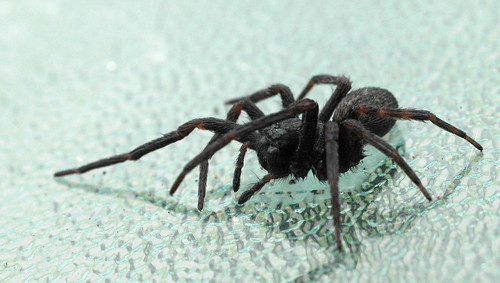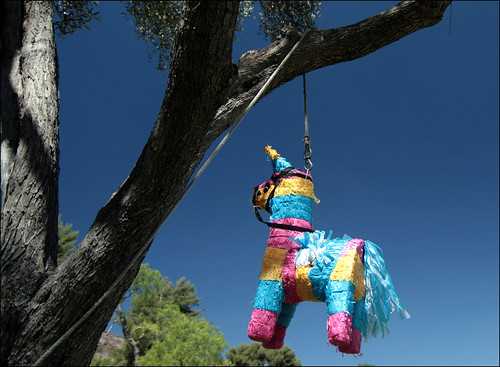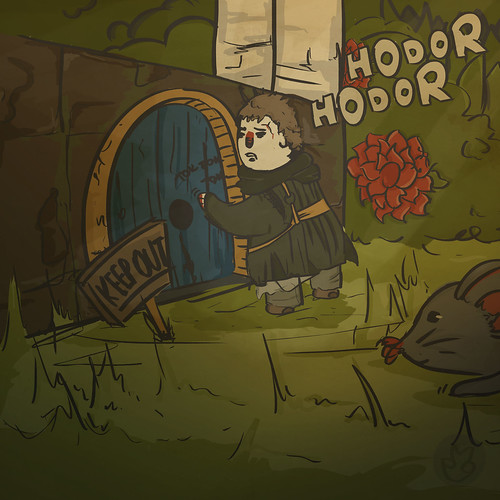Welcome to Word Buzz Wednesday, in which we round up our favorite buzzworthy words of the week. The latest: a Harry Potter-esque wasp; the Jetsons meets the ‘50s; and losing your sympathy.
dementor wasp
“It’s no wonder that when given the chance to name the yet unnamed insect, visitors to Berlin’s natural history museum voted to call it Ampulex dementor, after the soul-sucking Dementor spirits of the ‘Harry Potter’ series.”
Amanda Schupak, “Meet the soul-sucking ‘Dementor’ wasp,” CNET, May 28 2015
The Ampulex dementor, otherwise known as the dementor wasp, paralyzes its prey by injecting a poison, then drags it back to its nest for a zombie-fied feast.
Ampulex refers to a genus of wasps while dementor comes from the Late Latin dementare, “to drive out of one’s mind.”
Googie architecture
“A Los Angeles diner celebrated as a classic example of mid-20th century Space Age-style Googie architecture was granted historic monument status by city officials on Wednesday, protecting it from the threat of demolition.”
Daina Beth Solomon, “L.A. diner famed for ‘Googie’ architecture saved from threat of demolition,” Reuters, May 21, 2015
Pseudo-futuristic Googie architecture originated in 1949 with Googie’s, a coffee shop in West Hollywood designed by John Lautner, a student of Frank Lloyd Wright.
Another famous example of Googie architecture is the Welcome to Fabulous Las Vegas sign designed by graphic designer Betty Willis, who passed away this April at 91.
protodog
“Caspin ranks as a Protodog, a spontaneous pooch that bonds easily and can solve problems on its own or with people, according to dog intelligence measures created by scientists and trainers.”
Sue Manning, “Don’t let the slobber fool you, your dog could be a brainiac,” AP, May 13, 2015
HowStuffWorks defines the protodog as the “original dog type,” which “evolved from wolves to take advantage of the niche that humans provide.” The Dognition Assessment‘s Protodog, capitalized, is a pooch profile determined through 20 games that measure a dog’s “level of empathy, communication, cunning, memory and reasoning.”
Other profiles include the Ace, a problem-solver that is “socially elite,” bonds well, and is “good at almost everything,” and the Einstein, a dog that’s smart but socially awkward.
The prefix proto– comes from the Greek protos, “first.”
sneakernet
“In the not-so-distant past, when even medium-sized files could tax a network, many organizations resorted to ‘sneakernet’ — manually walking a disk, or later a thumb drive, from one computer to the next.”
Amanda Ziadeh, “Steering clear of ‘sneakernet’ at big data scale,” GCN, May 27, 2015
The term snearkernet originated around 1984, according to the Oxford English Dictionary (OED).
sympathectomy
“There is something Elna can think and do according to Dr. Drott, the surgeon– rather, something she could not do. It’s the simplest thing, and possibly more effective than the sympathectomy or drugs or anything else.”
Sean Cole, “Game Face: Frankly, Miss Scarlet,” This American Life, May 29, 2015
The sympathectomy, more formally known as Endoscopic Thoracic Sympathectomy, or ETS, is a surgery used to treat excessive sweating in the palms and face, as well as excessive blushing. The surgery involves the cutting of the sympathetic nerves that control those actions.
The OED’s earliest citation for sympathectomy is from 1900, and seems to have been used to treat glaucoma and Graves’ disease, and to “dilate arteries that have been stopped.”
The –ectomy of sympathectomy comes from the Greek ektemnein, “to cut out.”
[Photo via Flickr: “Welcome to Fabulous Las Vegas,” CC BY 2.0 by ADTeasdale]






